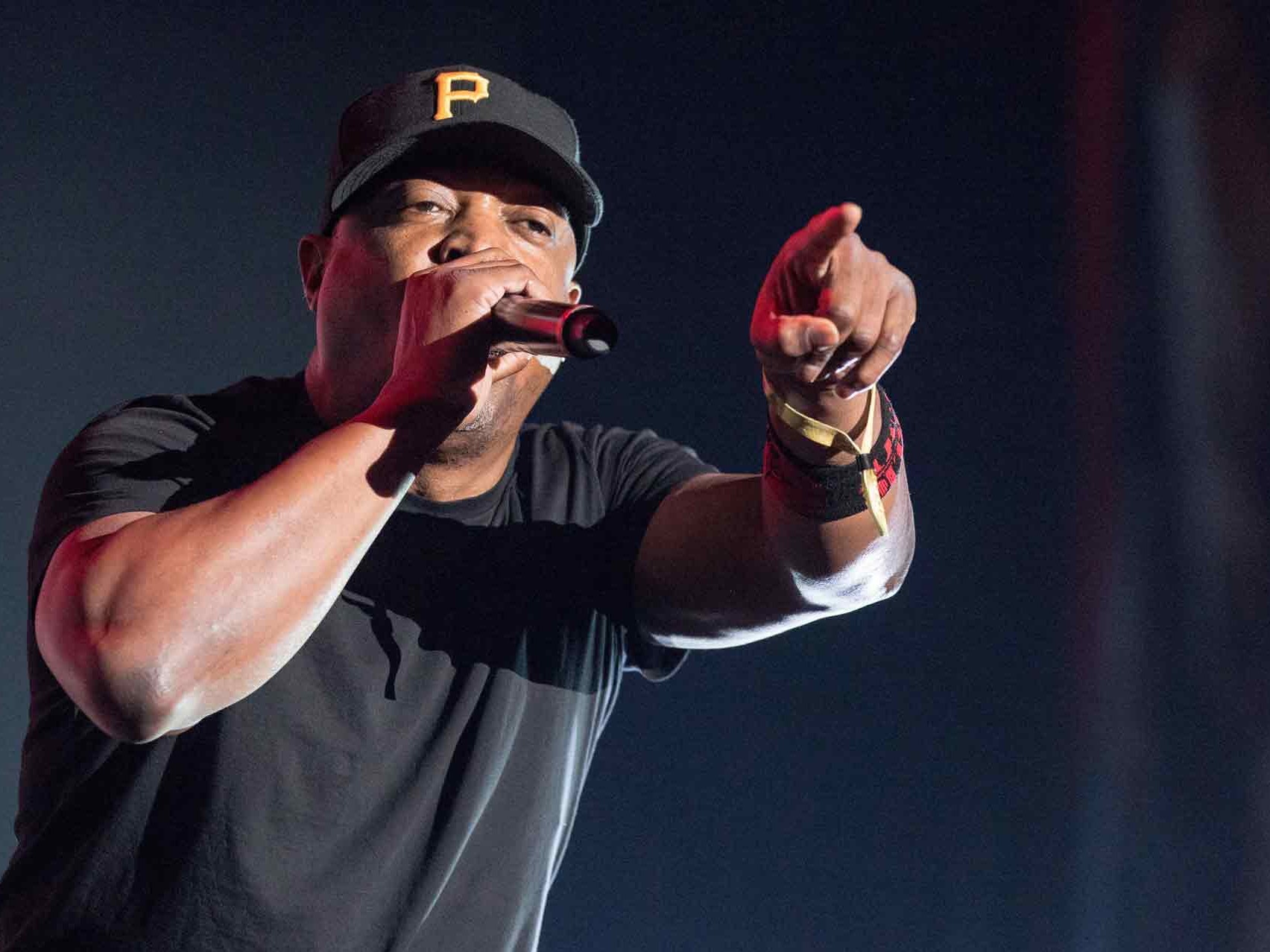At first, hip hop was considered a passing fancy.
It was free and fun and outdoors. It was what New York needed in the 1070s.
And then it became much more, “Hip hop is entering its so-called 50th-year anniversary … Its history and story is very deep,” said Chuck D (shown here), the Public Enemy rapper.
He linked with PBS and the BBC to produce “Fight the Power: How Hip Hop Changed the World.” It debuts at 9 p.m. Tuesday (Jan. 31) on PBS, skips a week because of the State of the Union speech, then has one hour on Feb. 14 and two on Feb. 21.
And no, this isn’t what we expect on a network that used to be known for classical music and Shakespeare. PBS has changed a lot; so has the perception of rap and hip hop. At a Television Critics Association press conference, PBS programming chief Sylvia Bugg called hip hop “the bold and revolutionary art form that influenced American culture and has made an impact worldwide.”
At first, it was just fun – in a city that needed it. “New York was left hanging by a country that was already in a tailspin,” recalled Chuck D, now 62 and then heading into teendom. “Guns and drugs all of a sudden just were flooded into the Black community.”
Then – on Aug. 11, 1973 – Clive Campbell ignited the change.
He was 18 then, a Jamaican native known as DJ Kool Herc, because of his Herculean athletic ability. But he was also a tech buff who found ways to scratch and mix records, prolonging the best beats. That day, he performed in the neighborhood’s back-to-school party. That notion – dancing to free, outdoor music – spread quickly.
It offered two of the four tentpoles of hip hop, said Lorrie Boula, Chuck D’s production partner. “The elements are actually break dancing, MC-ing, DJ-ing and graffiti.”
Growing up in South Bronx, she savored dance. “There was literally decay everywhere,” she said. “But we would set up and start break dancing. There would be a building on fire next to us and none of us noticed, because we were busy break dancing.”
For the first six years, Chuck D said, this was thoroughly non-commercial. “There was no such thing as hip hop records until 1979.”
In ‘79, the Sugar Hill Gang did “Rapper’s Delight” and Grandmaster Flash did “Freedom.” Three years later, Flash’s “The Message” became a hit. “Grandmaster Flash and the Furious Five – I looked at them as if, almost, that’s the Beatles,” Chuck D said.
“The Message” was a seven-minute burst of rage. “Hip hop has always been inherently political …. Any time you speak truth to power, you become controversial,” said Todd Larkins Williams, who directed the documentary.
The controversies peaked during the “gangsta rap” years. There was violence and misogyny … and music that outlived its roughest moments. “You had an art form and a genre that rose out of the concrete like a phoenix,” Chuck D said.
It went beyond the U.S. — the documentary is going to 120 countries – and beyond the youth culture.
“People tend to think, ‘Hey, this is adolescence; it’s kids,’” Chuck D said. “No, it’s (in its) 50th year.”

A grown-up genre: Hip hop turns 50
At first, hip hop was considered a passing fancy.
It was free and fun and outdoors. It was what New York needed in the 1070s.
And then it became much more, “Hip hop is entering its so-called 50th-year anniversary … Its history and story is very deep,” said Chuck D (shown here), the Public Enemy rapper.
He linked with PBS and the BBC to produce “Fight the Power: How Hip Hop Changed the World.” It debuts at 9 p.m. Tuesday (Jan. 31) on PBS, skips a week because of the State of the Union speech, then has one hour on Feb. 14 and two on Feb. 21. Read more…